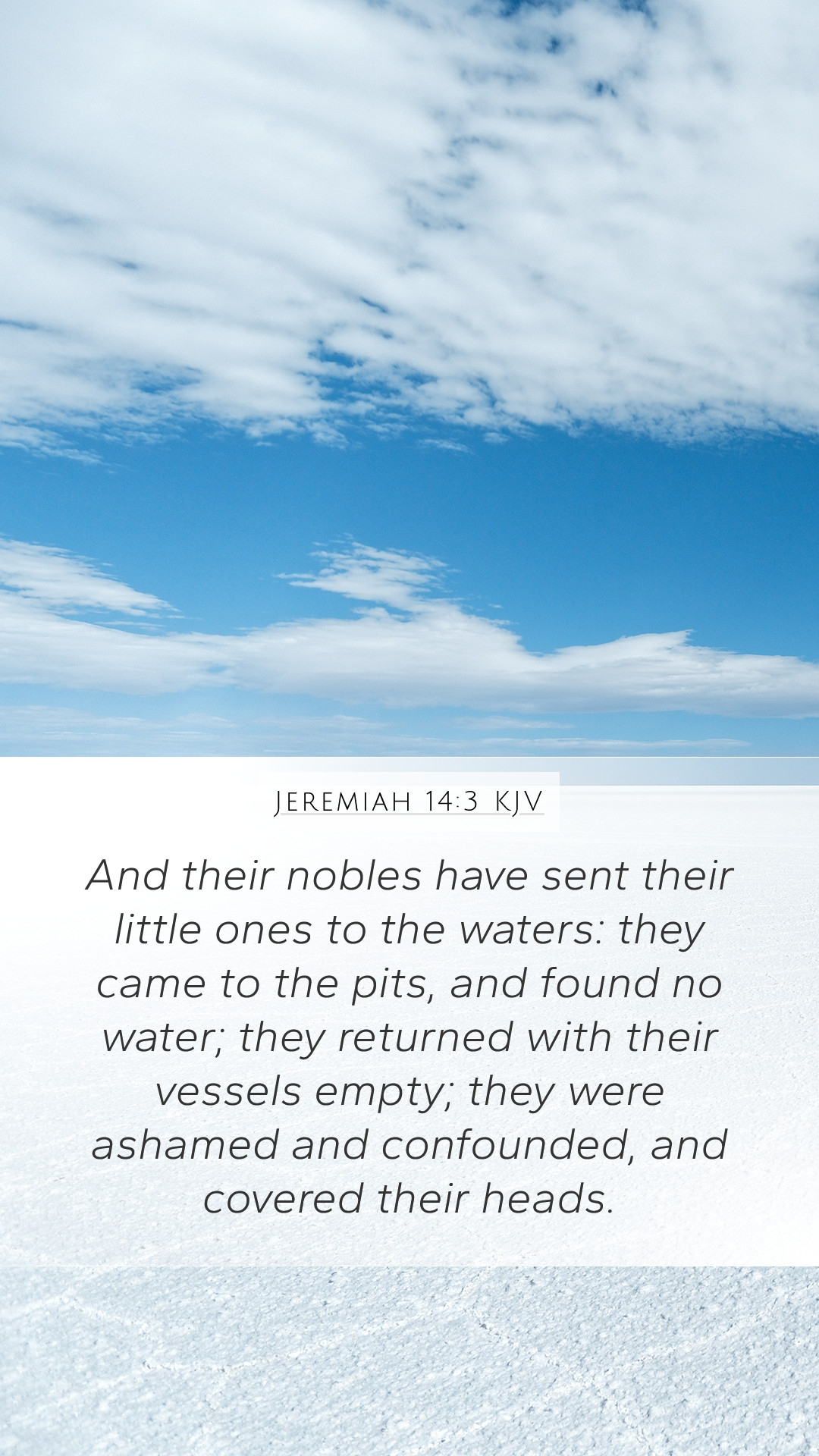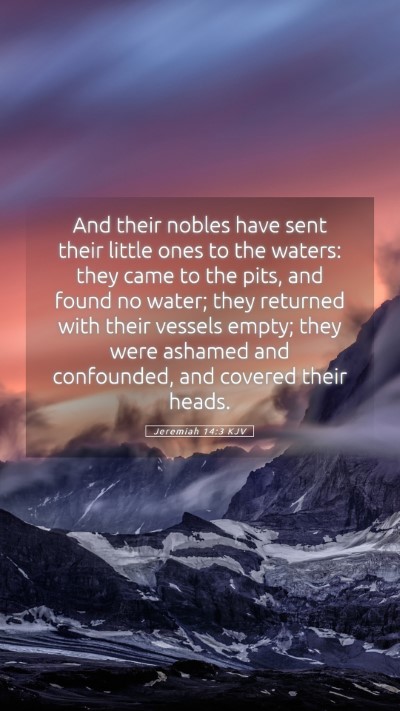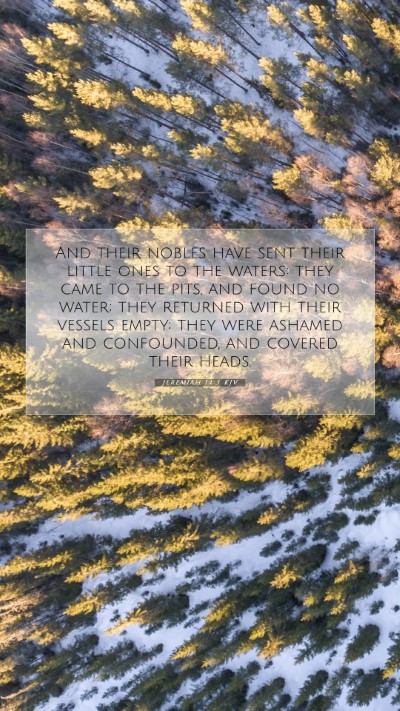Understanding Jeremiah 14:3
Bible Verse: Jeremiah 14:3 - "And their nobles have sent their little ones to the waters: they came to the pits, and found no water; they returned with their vessels empty; they were ashamed and confounded, and covered their heads."
Bible Verse Meaning
Jeremiah 14:3 paints a vivid picture of desperation among the people of Judah during a time of drought. This verse serves as a poignant commentary on the spiritual and physical desolation faced by the nation. The verse encapsulates the essence of their plight, using the metaphor of empty vessels to symbolize their lack of sustenance, both physically and spiritually.
Bible Verse Interpretations
The interpreters emphasize that the act of sending "little ones to the waters" indicates a helpless reliance on sources that have proven unfruitful. Matthew Henry posits that this illustrates a community’s futile search for hope and restoration in a time of crisis. Albert Barnes highlights the nobles' failure to provide for their people, pointing to a broader societal failure in leadership.
Biblical Exegesis
In conducting a biblical exegesis of Jeremiah 14:3, one must consider the historical context of Judah's desolation. Adam Clarke elaborates on the significance of water as a symbol for life and sustenance, prevalent throughout the Scriptures. The absence of water reflects not just a tangible drought but a spiritual drought, where resources deemed vital are entirely lacking.
Key Insights from Commentaries
- Matthew Henry: The need for the children to fetch water underscores the extent of the crisis; their return with empty vessels symbolizes despair and shame.
- Albert Barnes: The nobles' actions, or lack thereof, reveal a disconnect between the leadership and the needs of the people, reflecting a broader theme of accountability.
- Adam Clarke: Water represents not only physical nourishment but also metaphorical spiritual life, indicating the people's total abandonment of God in this circumstance.
Application of the Verse
Jeremiah 14:3 urges contemporary readers to reflect on their own sources of fulfillment. Just as the people sought water but found none, many today seek satisfaction in worldly endeavors that ultimately fail to nourish the soul. The emptiness of their vessels serves as a powerful reminder of the importance of spiritual sustenance drawn from God.
Related Bible Cross References
- Isaiah 41:17 - "The poor and needy seek water, and there is none." This verse echoes the sentiments of lack and desperation.
- Job 11:16 - "Because you would forget your misery, and remember it as waters that have passed away." This verse highlights the transient nature of human afflictions.
- Psalms 107:5 - "Hungry and thirsty, their soul fainted in them." This reinforces the theme of desperate need contrasted with unfulfilled desires.
- Ezekiel 18:30 - "Repent, and turn yourselves from all your offenses; so sin will not be your ruin." This calls for a change towards spiritual nourishment.
- John 7:37 - "If anyone thirsts, let him come to Me and drink." This New Testament reference invites those who are spiritually thirsty to find satisfaction in Christ.
Further Study and Exploration
This verse offers rich material for Bible study groups and online Bible study. It can be a starting point for discussions on Bible study tools that encourage members to explore the significance of scripture in times of need. Bible study lessons derived from this passage can facilitate deeper understanding of God's role in providing for our spiritual and emotional droughts.
Conclusion
In summary, Jeremiah 14:3 not only reflects the physical drought faced by Judah but also serves as an eternal lesson for us today about the importance of seeking sustenance from the right sources—most importantly, from God. As we delve into biblical exegesis and intentions behind the texts, we uncover bible verse meanings that resonate with our daily experiences, teaching us how to interpret Bible verses that speak to our circumstances.


